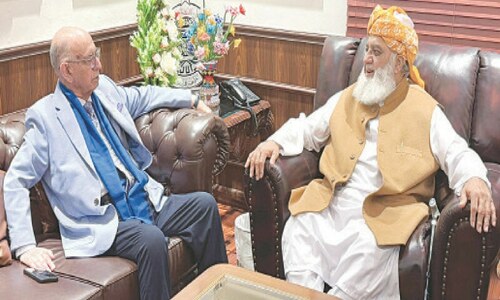LONDON/CAPE CANAVERAL: Astronomers have found a new planet, the closest yet outside our solar system and just an astronomical stone's throw away at four light years, raising the chances of finding a habitable planet in Earth's neighbourhood.
Researchers say the new planet is too close to its sun to support known forms of life, with a surface temperature estimated at 1,200 degrees Celsius (2,192 Fahrenheit). But previous studies suggest that when one planet is discovered orbiting a sun, there are usually others in the same system.
The new Earth-sized planet, announced in science journal Nature by Stephane Udry and Xavier Dumusque at the Geneva Observatory, orbits one of the suns in Alpha Centauri, roughly 25 trillion miles away.
“It's a landmark discovery because it's very low mass and it's our closest neighbour,” said Udry. “Its orbit is very close to its star and it must be much too hot for life as we know it but it may well be just one planet in a system of several.”
Commenting on the find, University of California astronomer Greg Laughlin said: “This is our back yard, so to find out that planet formation occurred there is just extraordinary.”
Since the discovery of the first exoplanets - those outside our solar system - in the early 1990s, more than 800 have been found but this one is the closest to Earth.
Getting there is extremely unlikely in the forseeable future. Laughlin estimates it would take about 40,000 years to travel to the new planet with current propulsion technology.
It was detected using the HARPS instrument on a telescope at the European Southern Observatory's La Silla site in Chile. The device is able to pick up tiny changes in the colour of the light coming from a host star as it wobbles under the gravitational influence of orbiting planets.
MINUTE SHIFTS
The gravitational effect in this case is minute, causing it to move back and forth by no more than 51 centimeters (20 inches) per second.
Alpha Centauri is a three-star system consisting of two stars similar to our sun and a faint red star called Proxima Centauri. The planet orbits Alpha Centauri B.
Astronomers have speculated about planets orbiting these suns since the 19th century but small planets like this are hard to find and instruments have only recently become sensitive enough to detect them.
“Our observations extended over more than four years using the HARPS instrument” said Dumusque.
The researchers said they will make their data available to other astronomers to test their findings but in the meantime some remain sceptical.
“Actually, I still have my doubts,” astronomer Artie Hatzes at Thuringian State Observatory in Tautenburg, Germany, told Reuters.
Hatzes said the wobble detected in the star could be caused by a series of other factors, including sun spots, so the data need to be tested by other researchers.
“These activity variations have to be filtered from the data before one can extract the signal due to the possible planet,” he said.
“It could well be that someone else analyzing the same data may come up with a different conclusion. That is why I am not 100 per cent certain.”
But Dumusque is confident. “We have considered in this analysis all the known possible explanations, including instrumental noise and stellar origin. In the end, the planetary solution is the most likely one.”












































Dear visitor, the comments section is undergoing an overhaul and will return soon.